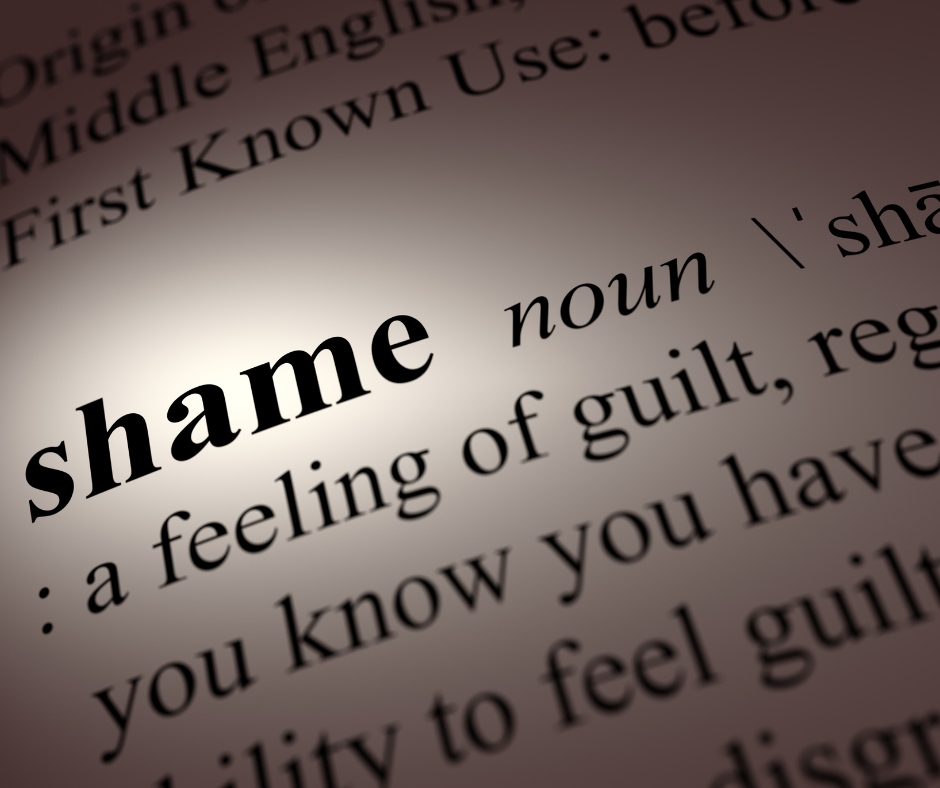Tall or short, fat or thin, at the very core we all desire to be seen as attractive by those around us. Being seen as attractive in the eyes of another is key to the evolutionary survival of humans. It helps us with mateship selection, reproduction of genes and also maintains our social survival. We move towards those we like, and move away from those we don’t. This is an evolutionary response and seen often in the animal kingdom. Functioning as a group helps us to hunt, helps protect us from threat, provides us with mates and ensures we are cared for in times of suffering. Just like the body has a natural response to hunger, fear and protection, so too does it have a natural response when we receive (or perceive) cues of rejection. Shame is a social emotion that is triggered inside us when we think we have done something or are something that could be rejected. Whilst this can be focused on behaviours that are disgusting like eating poo, it can also be focused on parts of ourselves for example our weight. When we feel that we are bad, or disgusting, we try our best to change our behaviours sometimes we might even want to avoid or get rid of parts of ourselves. This can work and perhaps leave a shame memory, or sometimes, it doesn’t work and we can be left feeling trapped, worthless, like we aren’t trying hard enough and defeated. For those of us living in a larger body, living in a world where we are judged, stigmatized and our weight or the new diet we should try is an appropriate discussion at the family dinner table, there is no way to hide our weight. These experiences can increase our vulnerability to a range of mental health challenges such as anxiety, depression and eating disorders.
Psychologist Dr Alicia Carter, who has recently joined the team at Psychology Consultants completed a PhD examining the efficacy of Compassion Focused Therapy as a treatment for body weight shame in people with a BMI greater than 30. Growing literature points to the negative psychological and psychosocial impacts of weight discrimination and living with the stigma of being overweight can lead to loneliness, stress, anxiety and depression.
Alicia explains that “when shame occurs, people’s natural response and coping strategy is to make changes that are socially acceptable, however when this response is internal, hostile and critical; blame, shame and self-loathing occurs.” She says that weight shaming is driven by a billion dollar industry fed on the notion that it is the individual’s fault that they are unable to change their weight however the long term damage that occurs from dieting is disregarded and can often lead to weight gain not weight loss.
Professor Anna Peeters, Director of the Institute for Health Transformation at Deakin University, along with countless research, supports this comment by stating: “We need to be very careful not to just blame individuals for this challenge as the stigma and shame around this topic is unfair and harmful. It is not just a lifestyle choice or due to a lack of willpower as many people assume, we know that there are strong social, biological, and environmental drivers of obesity that are outside of people’s control. There are major equity considerations here with Indigenous, non-metro and people living in lower socio-economic status communities being impacted more.”
Alicia explains; “Compassion focused interventions target the transdiagnostic experience of shame and criticism by strengthening the parasympathetic nervous system. In turn, providing individuals with the skills to engage their compassionate wisdom to alleviate suffering triggered by internal or external forces. Cultivating compassion and turning towards suffering with the motivation, courage and commitment to alleviate suffering is the first step towards a healthy mind, heart and body”.
Alicia has a broad range of interests and uses a range of therapeutic models in both individual and group therapy formats to target shame and criticism which are transdiagnostic symptoms. Alicia’s therapeutic style is aimed to treat anxiety, depression, stress, trauma and chronic pain along with body and weight concerns such as body dysmorphia, obesity and body weight shame. She is also interested in assisting with non-diagnostic areas such as those experiencing bullying, relationship struggles, as well as grief and loss.

Dr Alicia Carter
In addition to clinical practice, Alicia is a senior lecture at Central Queensland University (CQU) and continues to research the field of health psychology, specifically how compassion focused therapy can be used to assist individuals with nutritional, eating, body or health related concerns (body weight shame, lymphedema, and diabetes). Alicia has the capacity to see both adults and adolescents from Psychology Consultants Morningside.
Related articles:
Self Compassion to lessen body concerns
